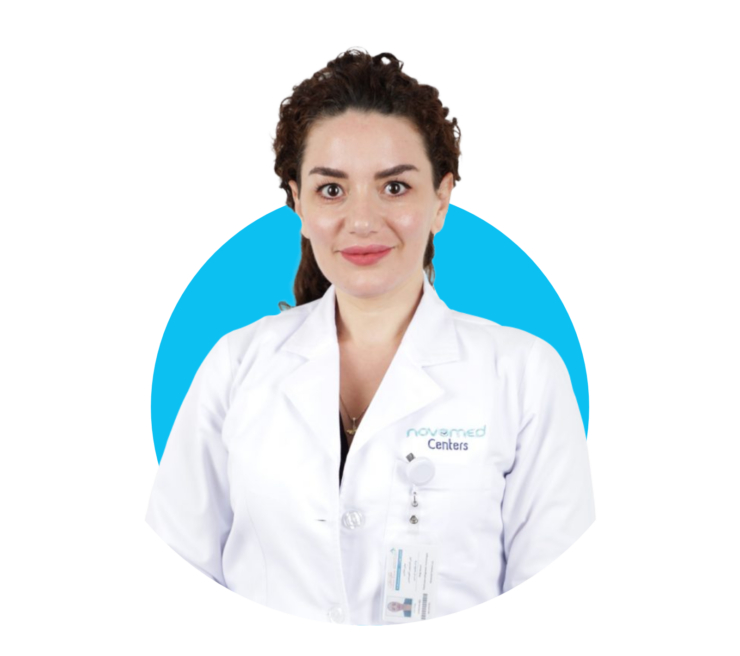What is dementia?
Dementia encompasses a group of symptoms that affect memory, thinking and social abilities to the point of affecting daily life. Alzheimer’s disease is the most common cause of progressive dementia in older adults, but there are several other causes of dementia. Depending on the cause, some symptoms of dementia may be reversible.
Although dementia usually includes memory loss, it still can occur due to other different causes. Just because you have memory loss does not mean you have dementia.
Dementia can cause both cognitive and behavioural changes. These changes can vary from one person to another, but they mainly include the following:
Cognitive changes
- Memory loss
- Difficulty communicating or finding words
- Difficulty thinking or problem-solving
- Difficulty planning and organizing
- Confusion and loss of sense of place and time
- Difficulty handling complex tasks
- Difficulty with coordination and motor functions
Psychological changes
- Personality changes
- Improper behavior
- Paranoia
- Anxiety
- Depression
- Frenzy
- Hallucinations
Dementia is caused by damage, malfunction, or loss of nerve cells and their connections in the brain. Dementia can affect people differently and cause different symptoms, depending on the affected area of the brain.
Types of dementia are often categorized according to what they have in common, such as the part of the brain affected. Some diseases that resemble dementia, such as those caused by a reaction to medications or vitamin deficiencies, may improve with treatment.
Progressive dementia
Types of dementia that progress and are not treatable include:
- Alzheimer’s disease. It is the most common cause of dementia. Although all of the causes of Alzheimer’s disease appear to be known, experts know that a small percentage of these causes are related to mutations of three genes, which can be passed down from parents to children. While we find that many different genes include Alzheimer’s disease, one gene that increases the risk is the apolipoprotein E4 (APOE) gene.
Patients with Alzheimer’s disease have plaques in their brains. These plaques are clusters of a protein called beta amyloid. These clusters are believed to destroy nerve cells and the fibers that connect them.
- Vascular dementia. damage to the vessels that supply blood to the brain can cause dementia. Blood vessel problems can cause a stroke or brain damage in one way or another, such as by damaging the fibers in the white matter of the brain. The most common symptoms is vascular dementia includes difficulties with problem-solving, slowness of thinking, focus and organization. These symptoms tend to be more pronounced compared to memory loss.
- Lewy body dementia. Lewy bodies are abnormal balloon-like clumps of proteins found in the brain of people with Lewy body dementia, Alzheimer’s disease and Parkinson’s disease. This is one of the most well-known types of progressive dementia. Signs and symptoms include visual hallucinations, and problems with focus and attention. Other signs include uncoordinated or slow movement, tremors, and muscle rigidity (Parkinsonism).
- Frontotemporal dementia. This is a group of diseases characterized by the degeneration of nerve cells and their connections to the frontal and temporal lobes of the brain, and areas commonly associated with personality, behavior, and language. Common symptoms affect behavior, personality, thinking, judgment, language and movement.
It should be noted that there are some dementia-like conditions that can be treated. These include:
- Immune disorders and infection. Dementia-like symptoms can result from a fever or other side effects of your body’s attempt to fight an infection. Multiple sclerosis and other conditions caused by the body’s immune system, which attacks nerve cells, can also cause dementia.
- Metabolic problems and endocrine defects. People who have thyroid problems, low blood sugar (hypoglycemia), too little or too large amounts of sodium or calcium, or problems absorbing vitamin B-12, may develop symptoms similar to dementia or other personality changes.
- Brain tumors. Rarely, dementia can be caused by damage from a brain tumor.
- Side effects of medications. Drug side effects, a reaction to a drug, or a multiple drug interaction can cause dementia-like symptoms.
- Cases of nutritional deficiencies. Not drinking enough fluids can cause (dehydration); Not getting enough thiamine (vitamin B-1), which is common in people with chronic alcoholics; Not getting enough vitamins B-6 and B-12 in your diet can cause dementia-like symptoms. Copper and vitamin E deficiency can also cause symptoms of dementia.
The risk of dementia increases as you get older, especially after age 65. However, dementia is not a normal part of the aging process, and it can occur in younger people. In addition to aging, having a family history of dementia puts you at a higher risk of developing the disease. However, there are also tests to determine if you have specific genetic mutations.
Other risk factors of dementia include, inactivity, poor diet, alcohol consumption, depression, diabetes, smoking, sleep apnea, and vitamins deficiency.
Diagnosing dementia and its type can be challenging. People develop dementia when they have cognitive impairment and lose their ability to perform daily functions, such as taking medication, paying bills and driving safely.
To diagnose the cause of dementia, a doctor must recognize a pattern of loss of skills and functions and determine what the person is still able to do.
Our neurologist will review your medical history and symptoms and conduct a physical examination. They will likely ask someone close to you about your symptoms, too.
There is no single test that can diagnose dementia. So, the neurologist will likely run several tests that can help identify the problem.
- Cognitive and neuropsychological tests. Our neurologist will evaluate your cognitive function through several tests that measure thinking skills, such as memory, orientation, logic, judgment, language skills, and attention.
- Neurological evaluation. Our neurologist will evaluate your memory, language, visual perception, attention, problem-solving, movement, senses, balance and reflexes.
- Brain scans
- Computerized tomography (CT) or magnetic resonance imaging (MRI). These tests can reveal evidence of a stroke, bleeding, tumor or hydrocephalus.
- Positron emission tomography scans. These scans can show patterns of brain activity and if the protein amyloid, a hallmark of Alzheimer’s, has accumulated in the brain.
- Laboratory tests. Simple blood tests can reveal physical problems that can affect brain function, such as a vitamin B-12 deficiency or an underactive thyroid gland. The spinal fluid is sometimes examined for infection, inflammation, or signs of some degenerative disease.
- Psychiatric evaluation. Our mental health professionals can determine whether depression or another mental health condition is contributing to your symptoms.
How is dementia treated?
Most types of dementia cannot be cured, but there are ways to control your symptoms.
Medical treatment
The following methods are used to temporarily relieve symptoms of dementia.
- Cholinesterase inhibitors. Drugs such as donepezil, rivastigmine and galantamine boost levels of the chemical messenger associated with memory and judgment.
Although they are mainly used to treat Alzheimer’s disease, the aforementioned drugs may also be prescribed for dementia, including vascular dementia, dementia associated with Parkinson’s disease, and dementia associated with Lewy bodies.
- Memantine. Memantine regulates the activity of glutamate, another chemical messenger associated with brain functions like learning and memory.
Other treatments
- Occupational therapy. Our occupational therapist can show you how to make your home safer and teach you coping behaviours.
- Modifying the surrounding environment. Reducing the crowds and noise can make it easier for a person with dementia to focus and perform normal functions. You may need to hide items that pose a threat to your safety, such as knives and car keys.
- Simplifying tasks. Break down tasks into easier steps and focus on success, not failure. Regularity and routine also help reduce confusion in people with dementia.


